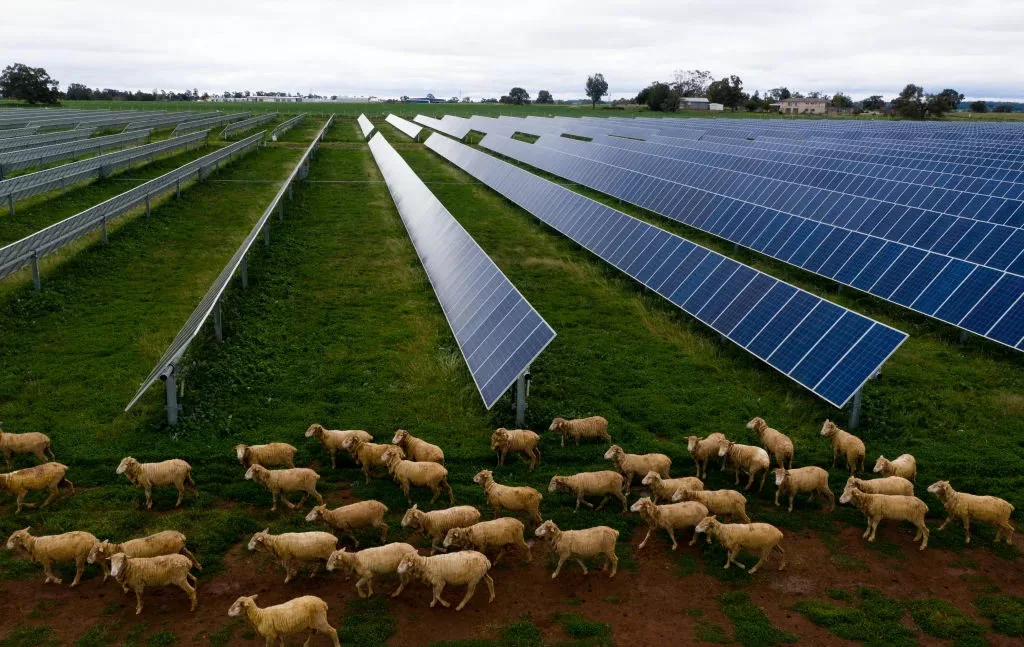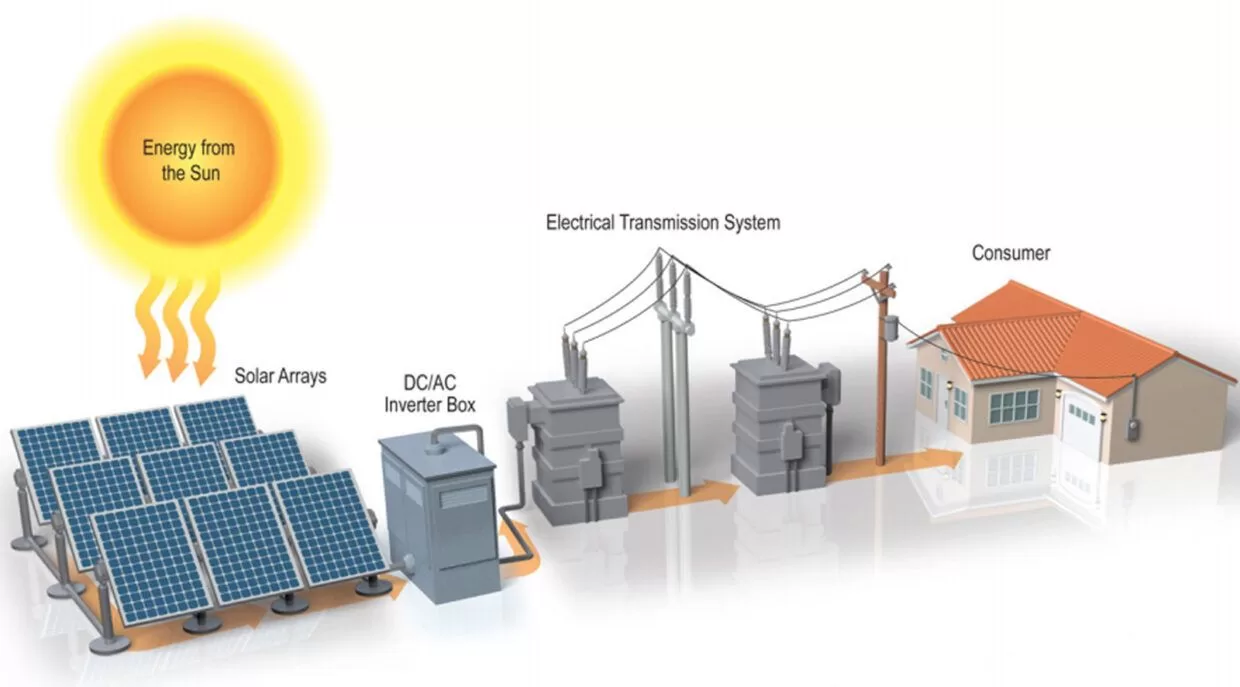A Look into Solar Farms and Grid-Connected PV Power Plants
Attention:
Are you prepared to harness the sun’s power and take charge of your energy needs in the future? Benefit from the many advantages of clean, renewable energy by joining the solar revolution now. Get in touch with us right now [in this write-up] to find out how solar energy may improve your life and help the environment!
Introduction
The hunt for sustainable and renewable energy sources has grown as the globe struggles with the effects of climate change and depleting fossil fuel stocks. Solar energy has risen among its competitors as a blazing star, catching the attention of both energy aficionados and environmentalists. In this post, we’ll explore the fascinating world of solar energy, examining all of its benefits and addressing all of its drawbacks. So let’s harness the sun’s energy and learn the unexpected benefits and drawbacks of solar power!
Utilizing the Sun’s Power: The Principles of Solar Energy
Let’s first examine the advantages and disadvantages before learning more about solar energy. Photovoltaic (PV) panels, which turn sunlight into electricity, are used to capture solar energy. An electric current is created when photons from the sun impact solar panels and dislodge electrons from atoms. An inverter converts this direct current (DC) into alternating current (AC), which is excellent for powering buildings, companies, and even large cities.

Benefits of Solar Power
1. Sustainable and renewable
The renewability of solar energy is among its most important benefits. We have access to a limitless amount of solar energy as long as the sun shines. Solar energy offers a sustainable alternative to fossil fuels, which are limited and non-renewable and increase our dependency on unsustainable resources.

2. Environmentally Conscious
Since solar energy doesn’t emit any greenhouse gases while it operates, it is particularly eco-friendly. By choosing solar energy, we can actively battle climate change and dramatically reduce our carbon footprint, leaving the earth greener and healthier for coming generations.
3. Energy Security and Independence
Relying on solar energy gives communities and countries a degree of energy security and independence. Local power production can reduce a region’s reliance on outside energy sources, improving energy security and stability.
4. Minimal Operating Expenses and Long-Term Savings
Solar panels are quite inexpensive to operate and maintain after they are installed. Solar energy is also a financially appealing option due to the numerous incentives and tax credits provided by governments and organizations. Owners of solar panels can see significant long-term savings on their energy costs over time.
5. Off-Grid Alternatives
Solar energy provides a lifeline in isolated or off-grid locations where connection to traditional power systems is constrained or nonexistent. It makes energy accessible in these areas, empowering locals and promoting growth.
Solar energy challenges
1. Variability and Storage
The intermittent nature of solar energy is one of its main problems. The production of solar electricity is influenced by the weather and the length of sunshine. Solar panels may not produce electricity at night or on overcast days; thus, effective energy storage options are required for a constant supply of electricity.
2. High Start-Up Prices
Solar energy can save money over the long run; however, for some people, the initial setup expenses may be too high. Solar energy adoption might be discouraged by the high upfront costs associated with purchasing and installing solar panels.
3. The Effect of Land Use on the Environment
Large-scale solar farm deployment necessitates extensive land usage, which might result in habitat loss and land-use disputes. If not handled properly, the manufacture and disposal of solar panels can also have an adverse effect on the environment.
4. Design Restrictions and Aesthetics
Due to aesthetic considerations, the appearance of solar panels on rooftops or in landscapes may be an issue for some people. Maintaining architectural harmony when integrating solar panels into existing structures may be difficult.
5. Energy Efficiency and Storage
Solar energy still faces difficulties with effective energy storage. Although battery technologies for solar energy storage are currently being developed, they are not yet completely economical or energy-efficient.
Identifying a Route to a Better Future
As we explore the world of solar energy, we come across an intriguing mix of benefits and difficulties. Without a doubt, solar energy offers a sustainable and eco-friendly substitute for conventional fossil fuels, ushering us towards a better future. However, it’s important to recognize and deal with the challenges that might prevent its widespread adoption, such as sporadicness, high initial costs, and problems with land usage.
Adopting solar energy necessitates cooperation between people, organizations, and institutions. We can overcome the obstacles and fully use the potential of solar energy by making investments in R&D, developing energy storage technology, and providing financial incentives. Together, we can maximize the sun’s energy and open the door to a greener, more sustainable world for future generations. Albert Einstein once said, “We can’t solve problems by thinking in the same ways that we did when we created them. So let’s adopt a new perspective and appreciate solar energy’s brilliance as it shows us the way to a better, greener future.
#SolarEnergy #RenewableEnergy #CleanPower #SustainableLiving #GreenRevolution
FAQ
Q: How exactly does solar energy operate?
A renewable energy source derived from the sun’s beams is solar energy. Through a mechanism known as the photovoltaic effect, solar panels, sometimes referred to as photovoltaic (PV) cells, collect sunlight and transform it into energy.
Q: What are the benefits of using solar energy?
A: There are several advantages to using solar energy. First of all, it considerably lowers greenhouse gas emissions, aiding in the fight against climate change. Second, because solar energy makes use of free and plentiful sunshine, it can result in long-term cost savings on electricity bills. Last but not least, using solar energy encourages energy security and independence by minimizing dependency on limited fossil resources.
Q: Does solar energy use have disadvantages or difficulties?
A: Solar energy has certain drawbacks despite being a promising renewable source. Because solar power generation depends on sunshine, it is erratic and influenced by the weather. Additionally, although they have been declining over time, the upfront expenses of installing solar panels can be significant. Concerns about land usage and the necessity of properly recycling old panels are further considerations.
Q: How does solar energy stack up against other forms of renewable energy?
A: Solar energy rivals other renewable sources well in terms of competition. In contrast to wind and hydroelectric power, solar energy may be produced in a variety of sizes, from modest household installations to huge utility-scale installations. Solar energy has its benefits, but in some areas, wind energy is still more reliable and cost-effective, while hydroelectricity provides dependable baseload electricity.
Q: How can people and companies switch to solar energy?
A: Making the switch to solar energy calls for meticulous preparation. People might start by evaluating their energy requirements and possible savings by performing a solar feasibility assessment. The upfront expenditures may then be made more reasonable by looking into different financing alternatives, such as solar leases or power purchase agreements. To lessen the financial strain, businesses can also benefit from government incentives and tax credits.
Q: How does solar power affect the environment?
A: The ecology is benefited by solar energy. It contributes to the reduction of air pollution and the fight against climate change by producing power without releasing greenhouse gases. Additionally, solar energy doesn’t need water to operate, making it a sustainable option for areas with a shortage of water.
Q: What changes are being made to solar technology to overcome its drawbacks?
A: Engineers and researchers are always trying to advance solar technology. To better control the erratic nature of solar energy, innovations have improved the efficiency of solar panels, created energy storage systems like batteries, and integrated smart grid technology. With these developments, solar energy should become a more dependable and common energy source in the future.
